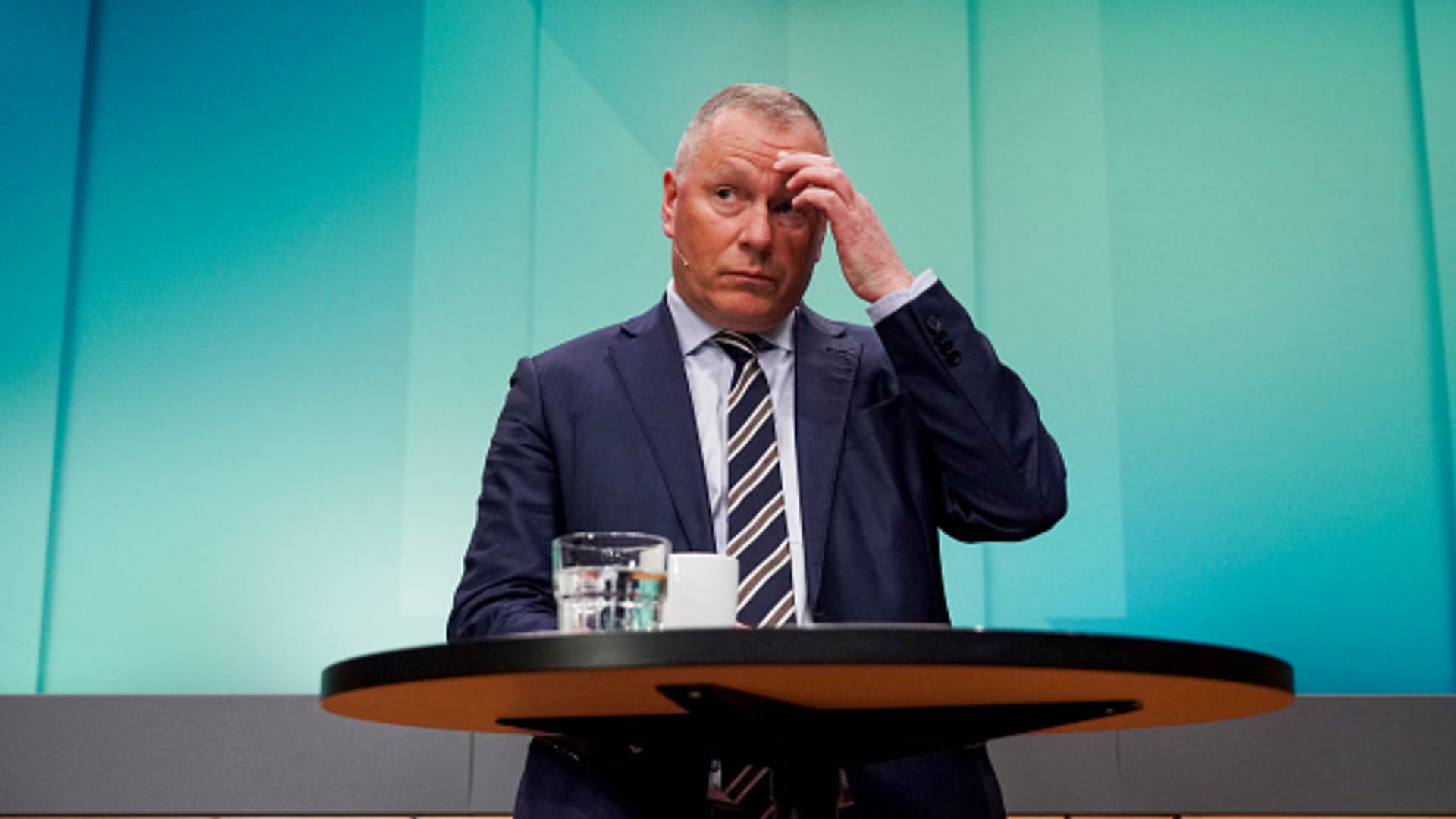Nicolai Tangen, CEO of Norges Bank Investment Management, addresses a press conference on his company’s annual results for 2024 at Norges Bank in Oslo, Norway, on January 29, 2025.
Ole Berg-rusten | Afp | Getty Images
Norway’s government is under growing pressure to let the country’s $1.8 trillion sovereign wealth fund invest in certain defense firms, with opposition parties describing a longstanding ban as “illogical” in the current security landscape.
Norway’s Government Pension Fund Global, the world’s largest sovereign wealth fund, has been prevented from taking stakes in companies that produce critical components for nuclear weapons since the early 2000s.
Under ethical guidelines, the fund has also been barred from investing in firms that are involved in the production of cluster munitions, anti-personnel landmines and tobacco, among other things.
The country’s center-right Conservative party says the time has come for the government to lift the ban on taking stakes in certain defense companies, citing Russia’s full-scale invasion of Ukraine and the “significant rearming” of countries such as China in recent years.
“We are currently facing the most serious security crisis since World War II. There is an urgent need for increased investment in the Western defense industry to safeguard our own security and that of our allies,” Tina Bru, deputy leader of the Conservative party, told CNBC via email.
In her view, Norwegian Prime Minister Jonas Gahr Støre should seek to change the ethical framework of the country’s wealth fund to make sure that companies seen as vital to the West’s security are not excluded.
A spokesperson for Norway’s finance ministry declined to comment when contacted by CNBC, saying the government would first answer a similar question from the Norwegian parliament.
Protesters with Palestinian flags during a demonstration outside the Norges Bank headquarters in Oslo, Norway, on Thursday, March 27, 2025.
Bloomberg | Bloomberg | Getty Images
The fund has previously excluded British defense contractor BAE Systems due to the firm’s production of key components for nuclear weapons and U.S. defense contractor Lockheed Matin Corp because of cluster munitions.
“Across the West, critical weapons are being procured from companies that are currently excluded from the Petroleum Fund’s investments. It’s illogical that Norway’s Pension Fund is prohibited from investing in the same companies that the government procures from through the state budget,” Bru said.
Norway’s center-left Labour Party is expected to govern alone until new parliamentary elections take place in September. The country’s ruling coalition government collapsed earlier in the year amid infighting over European Union energy directives.
A founding member of NATO, Norway is not a part of the EU but works closely with the bloc as a member of the wider European Economic Area.
Surging defense stocks
The debate over how Norway’s wealth fund should respond to the evolving security landscape comes at a time of higher defense spending and soaring industry profits as governments respond to elevated geopolitical risk.
Defense stocks have typically been excluded from portfolios based on environmental, social and governance (ESG) factors due to ethical concerns over the sector’s association with warfare.
In recent months, however, ESG fund managers appear to have become increasingly comfortable with holding defense companies.
A spokesperson for Norges Bank Investment Management, which manages the wealth fund, declined to comment when asked about calls for a revision of the fund’s ethical guidelines.
Norway’s Prime Minister Jonas Gahr Store gives a speech during the Autumn 2024 conference of Equinor, a Norwegian multinational energy company, in Oslo, Norway on November 26, 2024.
Thomas Fure | Afp | Getty Images
One of the world’s largest investors, Norway’s sovereign wealth fund was established in the 1990s to invest the surplus revenues of the country’s oil and gas sector. To date, the fund has put money in more than 8,650 companies in over 60 countries around the world.
Hans Andreas Limi, a lawmaker for the Scandinavian country’s right-wing Progress Party, recently introduced a private members’ bill to remove the fund’s nuclear weapons ban, according to The Financial Times. He reportedly described the ban as “hypocritical.”
Ida Kassa Johannesen, head of commercial ESG at Saxo Bank, said Norway’s finance ministry shouldn’t be influenced by political pressure to lift the fund’s nuclear weapons ban.
“Ultimately the Norwegian ministry of Finance which is responsible for overseeing the work done by Norges Bank Investment Management (which is responsible for the fund’s management), has fiduciary duties and will decide the next course of action,” Johannesen told CNBC via email.
“The ministry actions shouldn’t be swayed by public opinions but rather the best interests of the fund’s beneficiaries (Norway and its current and future generations) and the laws and regulations that govern the fund’s mandate,” she added.





